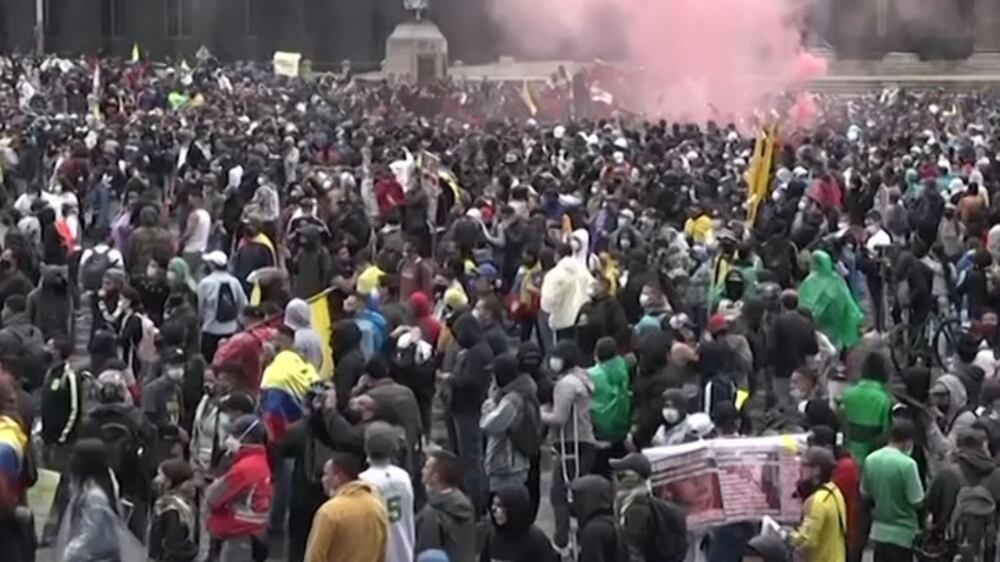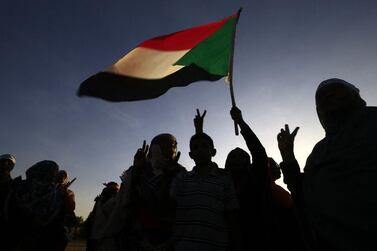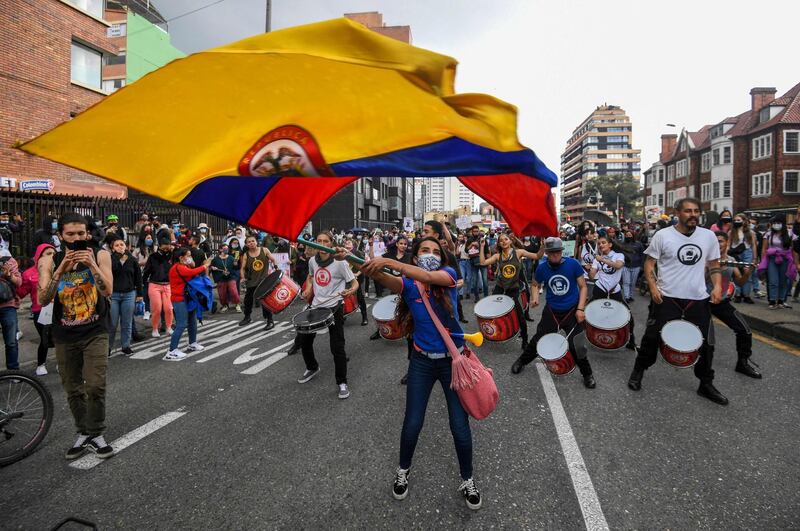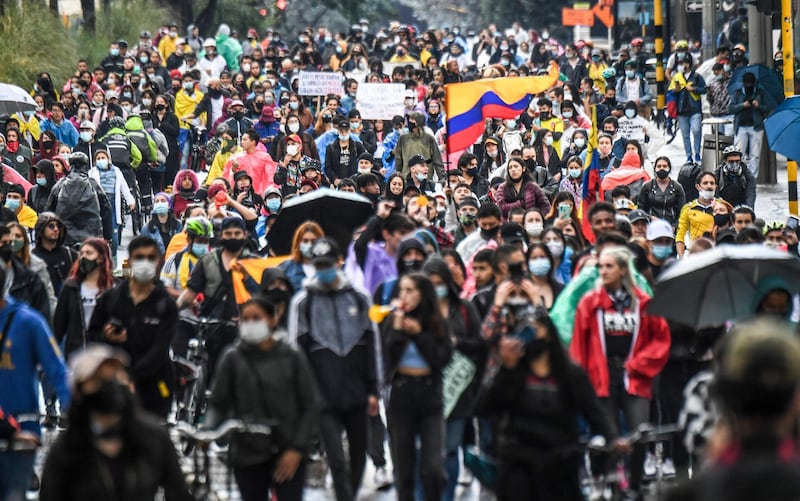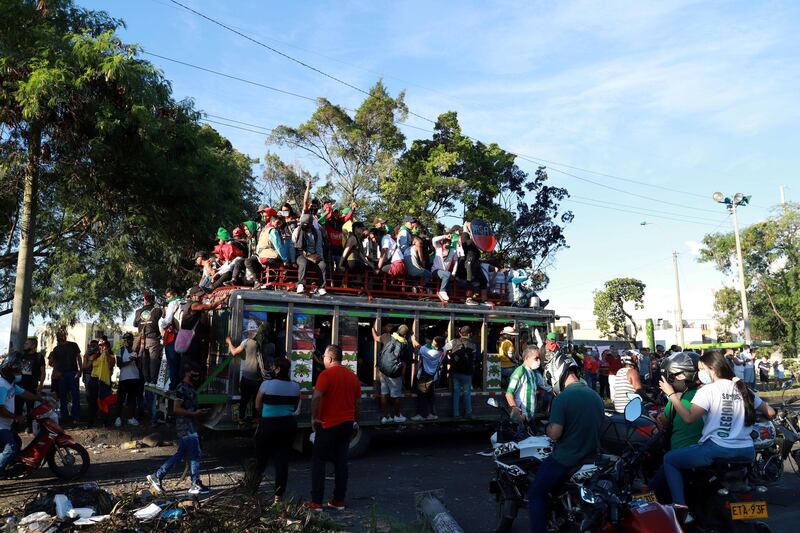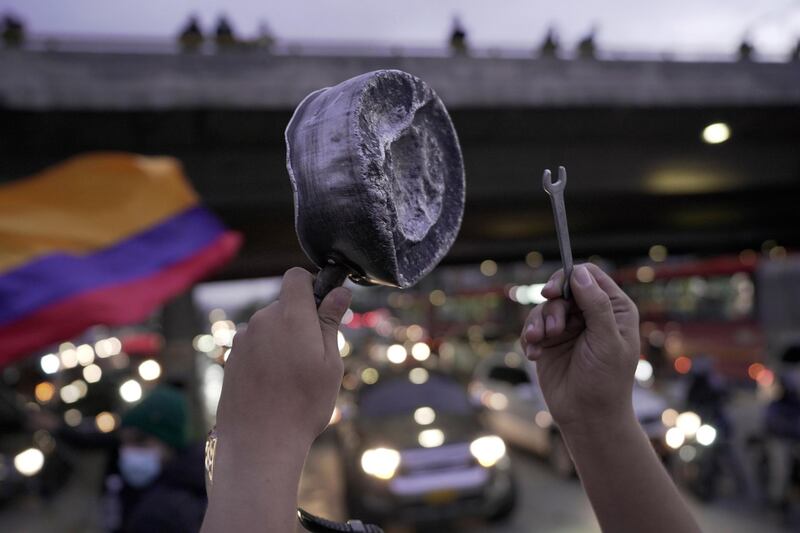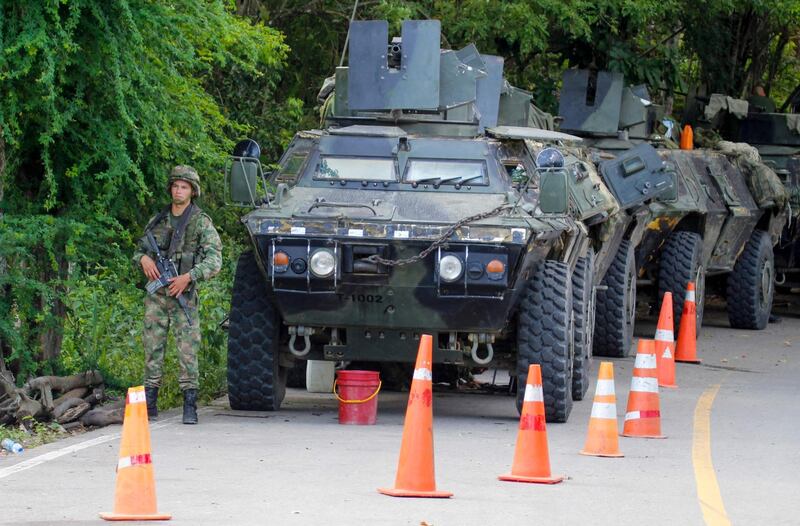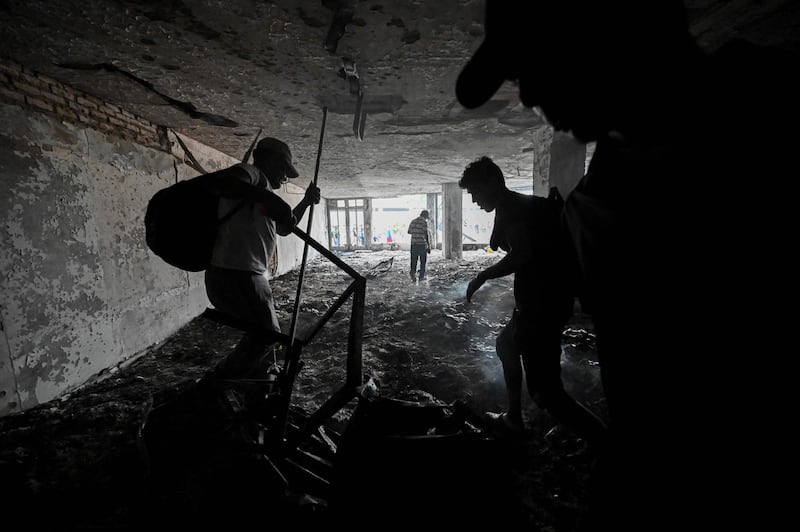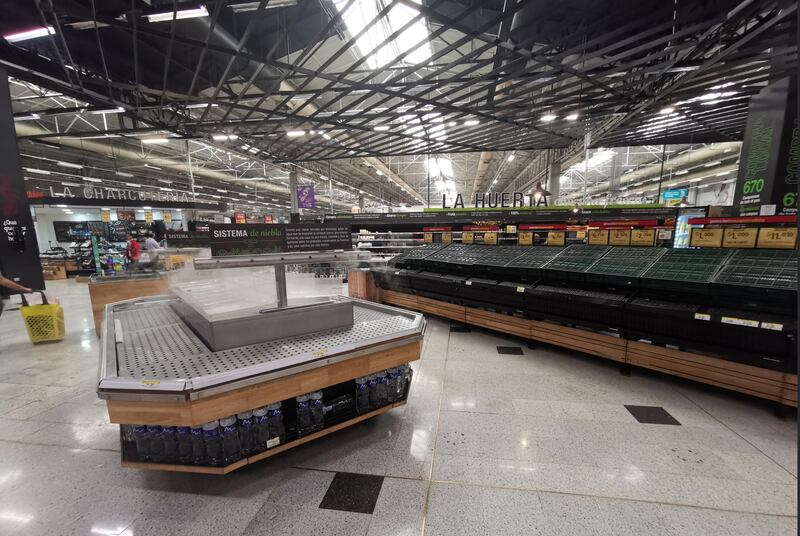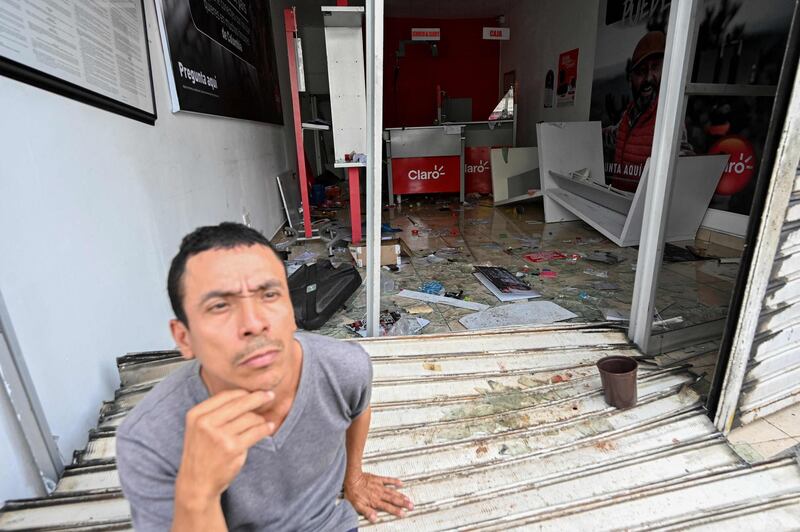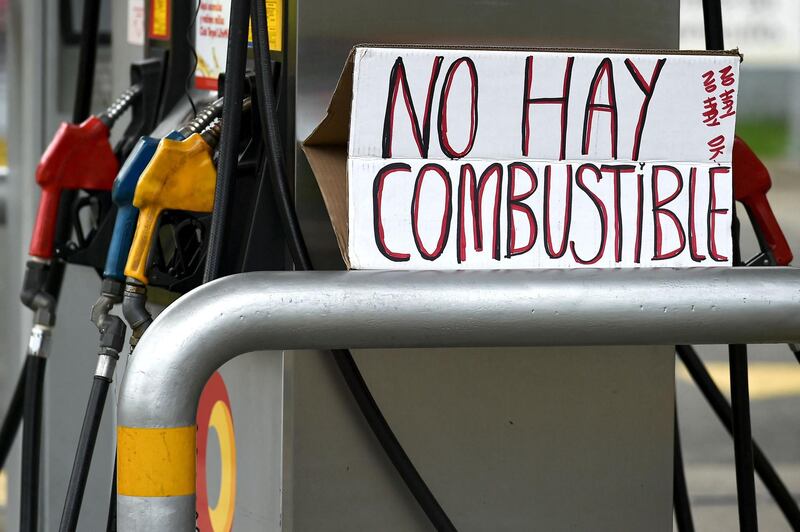International organisations condemned security forces’ violent repression of protests in Colombia after numerous deaths and called for calm before large anti-government rallies planned for Wednesday.
The UN, US, EU and human rights bodies joined a chorus of criticism on Tuesday after official data showed 19 people were killed and 846 injured in running clashes with the security officers.
Colombia’s human rights ombudsman – a state agency independent from the government – said 89 people were listed as “disappeared”.
The protests began last week, initially in opposition to a proposed tax increase. But they morphed into a broader movement against the government of President Ivan Duque and inequality worsened by the Covid-19 pandemic.
Looting, vandalism and attacks on police kiosks have been reported, while the UN’s human rights office expressed “profound shock” on Tuesday after reports that officers opened fire on demonstrators overnight in Cali, Colombia’s third-largest city and the centre of the unrest.
“What we can say clearly is that we have received reports, and we have witnesses, [of] excessive use of force by security officers, shooting, live ammunition being used, beatings of demonstrators and as well detentions,” UN human rights spokeswoman Marta Hurtado told reporters in Geneva.
A local security official said five people died in Cali overnight and 33 people were injured.
“Given the extremely tense situation, with soldiers as well as police officers deployed to police the protest, we call for calm,” Ms Hurtado said on Tuesday.
She urged security forces to use firearms only as a last resort when facing an imminent threat of death or serious injury.
The Ministry of Defence sent 47,500 troops nationwide. In Cali alone, 700 soldiers, 500 riot police officers, 1,800 other police and two helicopters were put into operation.
By nightfall on Tuesday, dozens of people were attacking police stations in the capital.
Thirty civilians and 16 police officers were injured, Bogota Mayor Claudia Lopez said on Twitter.
The escalation was brutal and violent, she said. Police had been shot and stabbed, and one station was set on fire while officers were inside.
The government secretariat tweeted that 16 stations had been vandalised.
Earlier, Ms Lopez had urged protesters to record “what is happening in the street” to prevent abuses, after her request for police to stop using rubber bullets against demonstrators was rejected.
In several parts of the country, roadblocks were erected, causing concern for deliveries of oxygen and other medical supplies as the country grapples with its latest surge of the coronavirus.
Mr Duque’s government has officially acknowledged only one civilian and one police death, and blames violence on armed groups operating in the country.
“Nothing justifies armed people who, protected by the legitimate desires of citizens to march, go out to shoot defenceless citizens and cruelly attack our police,” said Mr Duque, who on Sunday withdrew the proposed tax reform that sparked the protests.
Three uniformed officers have been shot since the demonstrations began.
Defence Minister Diego Molano said the violence was “systematic, premeditated and financed by criminal organisations”.
“Our public forces must be ruthless towards those who use vandalism,” the minister said.
On Tuesday, the EU condemned the reported deaths.
Peter Stano, a spokesman for the bloc, said it was a priority to stop the escalation of violence “and to avoid any disproportionate use of force by security forces”.
US State Department deputy spokeswoman Jalina Porter underlined the right of all people to protest peacefully.
“Violence and vandalism is an abuse of that right. At the same time, we urge the utmost restraint by public forces to prevent additional loss of life,” she said.
The anti-government protests come at a time of economic despair for many, fuelled by the global coronavirus crisis.
In its worst performance in half a century, Colombia’s GDP shrank 6.8 per cent in 2020. Unemployment stood at 16.8 per cent in March.
About half the population lives in poverty, according to official figures.
